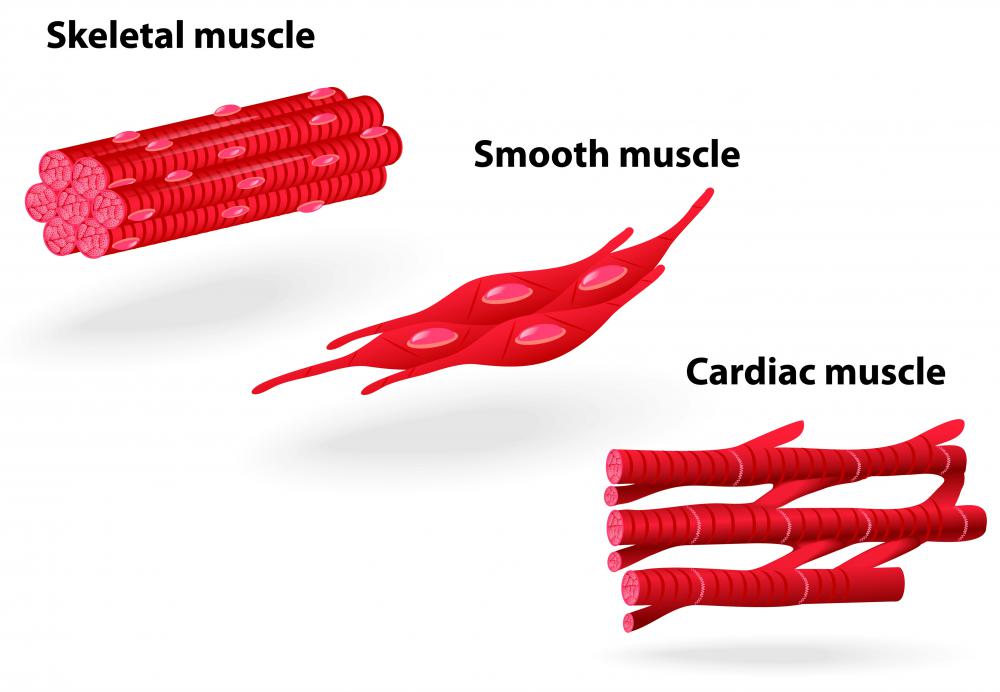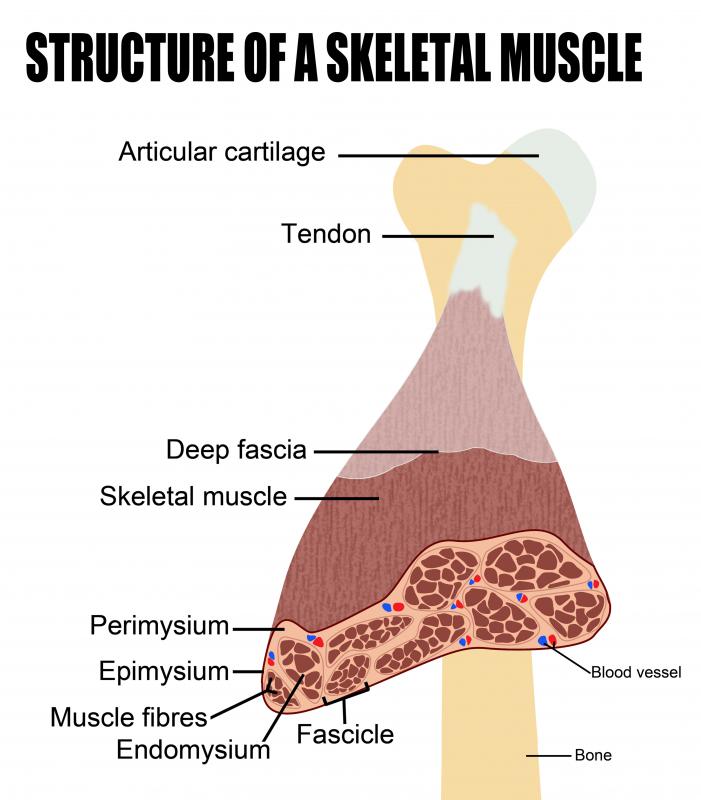At TheHealthBoard, we're committed to delivering accurate, trustworthy information. Our expert-authored content is rigorously fact-checked and sourced from credible authorities. Discover how we uphold the highest standards in providing you with reliable knowledge.
What Are the Effects of Exercise on the Muscular System?
All muscles in the body, including those of the skeletal system and cardiac muscle, may benefit from regular exercise. Various involuntary systems and processes combine their effort to bring oxygenated blood to the working muscles. The result may be improved strength, a slimmer body and better overall health.
There are three types of muscles, including skeletal, cardiac and smooth. Both skeletal muscles, which assist in locomotion and posture and cardiac, found in the heart, benefit from regular activity. Hypertrophy is an increase in skeletal muscle size, one of the most obvious effects of exercise on the muscular system, especially from resistance or strength training. Smooth muscle such as in the stomach and intestines is controlled by the autonomic nervous system and isn’t affected.

The body’s muscular, cardiopulmonary, and nervous systems all respond to increased demand of the muscles for oxygenated blood. This gets diverted from non-vital organs to increase energy within the muscles. Byproducts from the increased activity such as lactic acid, hydrogen ions and carbon dioxide stimulate the respiratory system to increase breathing for better oxygen exchange.

Effects of exercise on the muscular system show up in cardiac muscle too. A strong heart can pump more blood each time it beats, carrying nutrients and oxygen to all parts of the body. The pulse rate of a person who exercises regularly will be slower than most people, because the heart doesn’t need to pump as much to move the same amount of blood. Steady aerobic exercise using the major muscle groups, enough to cause an obvious increase in respiration, is best for continued cardiac health.

Two interesting effects of exercise on the muscular system are the decrease of inhibitory neural feedback and synchronous activation. The first process means the nervous system lets the muscle work longer and harder than it would if the muscle were untrained, where it might be injured. Synchronous activation allows more muscle fibers to work in tandem, giving the muscle an enhanced ability to handle the increased activity and perform at a higher level. The result is a measurable strength gain, particularly in women’s muscles and those of adolescents. In addition, strength training with weights and resistance bands can reverse muscular decline that comes with aging.

Warming up and cooling down can be vitally important to a proper workout. These may prevent adverse effects of exercise on the muscular system like strain injuries resulting from a lack of good preparation. The muscles need adequate blood and oxygen flow to begin vigorous activity. Stretching after the workout keeps them from tightening up and also keeps them flexible long after the workout is finished.

Weight-bearing exercises also contribute to bone density, a primary concern especially for women, who are more prone to osteoporosis. Tension on muscles improves strength and balance, which when combined with higher bone density makes fall injuries less likely. Strong, conditioned muscles at rest burn more calories than weak muscles. Regular exercise also helps prevent obesity, a major cause of health problems at any age.
AS FEATURED ON:
AS FEATURED ON:
















Discussion Comments
@anon335493 - When using warm-ups on muscles, one thing I've learned is that you have to constantly keep up with the routine, unless you want your muscles to "fall behind", per se. For example, let's say that you consistently work out, and develop some strong and ripped muscles. If you stop that routine, you'll lose that firmness in your muscles, which may even become flabby. No matter the exercise routine, it's always vital to keep up with your fitness goals.
@RoyalSpyder - You make an excellent point. For the past few years, I've done a daily routine of push-ups, sit-ups, jumping jacks, and up-downs. When I first began my routine, even sixty jumping jacks would tire me out. However, I now do close to two hundred jumping jacks. I realized that I had to push myself farther and farther because my body was getting used to the exercising.
In fact, this doesn't just apply to working out, but it can also apply to many aspects of life. Some things may seem challenging to us at first, but there's always room for improvement, and always room to push ourselves farther.
One thing I've noticed about exercise is how much of effect it can have on you if you haven't worked out in a while. For example, there was one time where one of my friends (who exercises on a routine basis), stopped working out for about a month, due to depression. When he came back to his work out, just a few minutes of rounds wore him out completely. I think the reason why this is, is because when you don't give your body the energy it needs, you need more time to build up your strength. However, the more you exercise, the more your body becomes use to the daily routine.
What are effect of warm-ups on muscles?
Post your comments